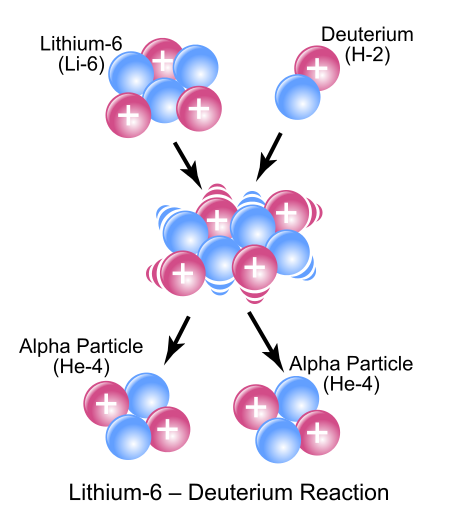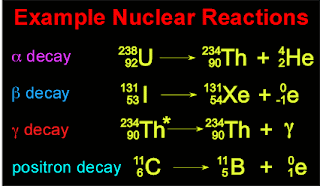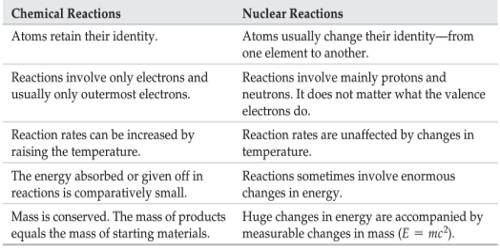Nuclear Reactions Study Guide
INTRODUCTION
From the law of conservation of energy, we know that energy can neither be created nor be destroyed, but that it can be transferred to another medium.
A nuclear reaction is no exception and follows the principle of energy conservation. Let us learn in-depth about nuclear reactions!
DEFINITION OF A NUCLEAR REACTION
- A nuclear reaction occurs when an atomic nucleus collides with a subatomic particle to produce one or more than one nuclides. The process of forming nuclides is known as a nuclear reaction.
- In a nuclear reaction, the mass of the atomic nucleus is always smaller than the respective masses of the subatomic particles, as the subatomic particles consist of both neutrons and protons. This difference in particles is caused due to the nuclear binding energy.
- Nuclear binding energy can be defined as the energy which helps to bind the protons and the neutrons together in the nucleus.
- So, during a nuclear reaction, the energy gets released from the nuclear binding energy.
- Hence, from the equation, e = mc2, we can observe the energy released from nuclear energy.
TYPES OF NUCLEAR REACTIONS
There are mainly two types of nuclear reactions. They are as follows:
- 1. Nuclear fission reaction –
This reaction involves the absorption of neutrons by the hefty nucleus that causes them to separate into two lightweight nuclei.
- 2. Nuclear fusion reaction –
In this reaction, two relatively light-weighted nuclei collide and combine to form a single heavy-weighted nucleus.
Processes that are not considered to be nuclear reactions are as follows:
-
The nuclear scattering process: In this process, the nuclear reaction does not occur. It consists of collision and separation of atomic nuclei without any composition changes of the nuclei.
-
Spontaneous fission process: Here, the nuclear fission reaction does not need a neutron to proceed hence, no nuclear reactions occur.
-
Nuclear decay: In this process, an unstable nucleus emits radiation to lose energy hence no nul=clear reaction occurs.
SUMMARY
- A nuclear reaction is of different types, but two main types are fission and fusion nuclear reactions.
- Nuclear reactions are used in various fields, from medical to space exploration.
FAQs
Q. What are the 5 types of nuclear reactions?
5 types of nuclear reactions are as follows:
- Fission
- Fusion
- Transmission
- Nuclear decay
- Spontaneous fission
Q. Who discovered nuclear reactions?
Ernest Rutherford first observed nuclear reactions when he bombarded nitrogen with alpha particles.
Q. What is the q value of a nuclear reaction?
The q value of a nuclear reaction is considered the total amount of energy emitted or absorbed during the nuclear reaction.
Q. What is the difference between chemical reactions and nuclear reactions?
We hope you enjoyed studying this lesson and learned something cool about Nuclear Reactions! Join our Discord community to get any questions you may have answered and to engage with other students just like you! We promise, it makes studying much more fun!😎
SOURCES
- Nuclear Reaction: https://www.sciencedaily.com/terms/nuclear_reaction.htm#:~:text=In%20nuclear%20physics%2C%20a%20nuclear,an%20event%20is%20exceptionally%20rare.Accessed 19th April 2022.
- Nuclear Reactions: http://ch302.cm.utexas.edu/nuclear/nuclear-change/selector.php?name=nuclear-rxns Accessed 19th April 2022.
- Nuclear Reaction: https://www.britannica.com/science/nuclear-reaction. Accessed 19th April 2022.



